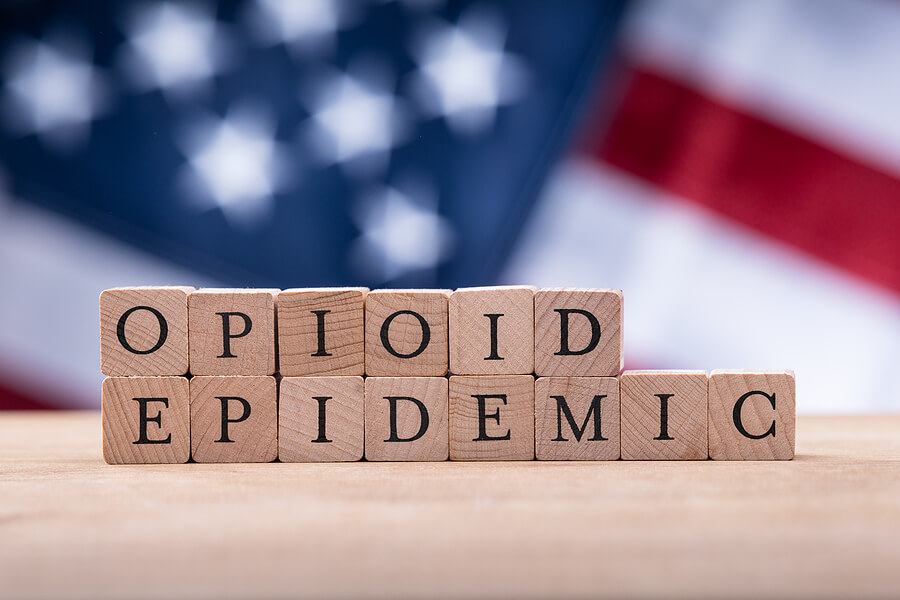
Opioid Crisis Settlements: An Opportunity to Expand Access to Technology-based Recovery Supports
March 10, 2021
By Hans Morefield, CEO, CHESS Health
Throughout the late ‘90s, prescription opioids became widely distributed as pharmaceutical companies assured doctors of their safety and that patients would not get addicted. As their highly addictive nature became exposed, these medications were increasingly prescribed, and addiction to them skyrocketed. Now, these pharmaceutical companies, along with the drug distributors who delivered millions of pills to small towns, are being held accountable for their role in exacerbating a nationwide health crisis.
For decades, Purdue Pharma has marketed and manufactured OxyContin and other addictive opioids. Playing a central role in creating the opioid addiction crisis, the pharmaceutical giant has agreed to plead guilty to three felony charges of criminal wrongdoing. However, this is not the first time the company was charged. In 2007, they pled guilty to illegal marketing tactics they quickly resumed in favor of profit.
A global consulting firm for corporations and governments, McKinsey & Co., has agreed to pay $573 million for their role in the opioid epidemic. In documents and emails uncovered through an investigation, McKinsey worked closely with Purdue Pharma to drive OxyContin’s sales during the worsening opioid crisis.
The recipients of payouts from the McKinsey and Purdue settlements will primarily be able to use their discretion in deciding what the funds are going to support. However, it is anticipated that the funding will be used for mental health and substance abuse programs. Experts recommended spending to target evidence-based recovery programs, prevention, treatment, and medications for opioid addictions.
The announcements regarding these settlements come during the COVID-19 pandemic, which has fueled the fire started by opioid manufacturers. Opioid use drastically increased in the opening months of 2020, after being on a downward trend the year before. With the pandemic having a massive impact on mental health in America, by November nearly 50% of people experienced clinical anxiety and depression, up from 11% in 2019.
Legislation has been introduced to combat this opioid and mental health crisis, setting $4.25 billion aside for mental health as part of a massive $900 billion stimulus package to aid in COVID-19 relief. This is the largest carve-out that mental health organizations have received in any one bill in history and is supported by increasing awareness of the pandemic’s impact on mental health.
These funds will make it easier for mental health provider organizations to implement technological solutions to better deliver care in the absence of in-person meetings and scale to meet the growing need. Connecting with others has been a mainstay in recovery programs, and technology can facilitate this while social distancing is in play. Investments in technology also support increasing Peer Engagement Specialists’ reach who need modern communication methods to remain connected to clients.
Perhaps something good may come of this tragedy as the combination of federal and private funds may very well expand access to care and help scale recovery through technology-based support for those who need it most.
Resources:
- Faraci, A. (2020, November 10). Here’s how to Use $50 billion IN OPIOID settlement money to help people. Retrieved February 06, 2021, from https://www.arnoldventures.org/stories/heres-how-to-use-50-billion-in-opioid-settlement-money-to-help-people/
- Forsythe, M., & Bogdanich, W. (2021, February 04). McKinsey settles For $573 million over role IN opioid crisis. Retrieved February 06, 2021, from https://www.nytimes.com/2021/02/03/business/mckinsey-opioids-settlement.html
- Mann, B. (2020, November 18). Federal judge Approves Landmark $8.3 Billion Purdue Pharma OPIOID SETTLEMENT. Retrieved February 06, 2021, from https://www.npr.org/2020/11/17/936022386/federal-judge-approves-landmark-8-3-billion-purdue-pharma-opioid-settlement
- Wan, W. (2020, December 22). Pandemic relief Bill DELIVERS $4.25 billion for mental health services. Retrieved February 06, 2021, from https://www.washingtonpost.com/health/2020/12/21/mental-health-services-get-billions-relief-bill/
